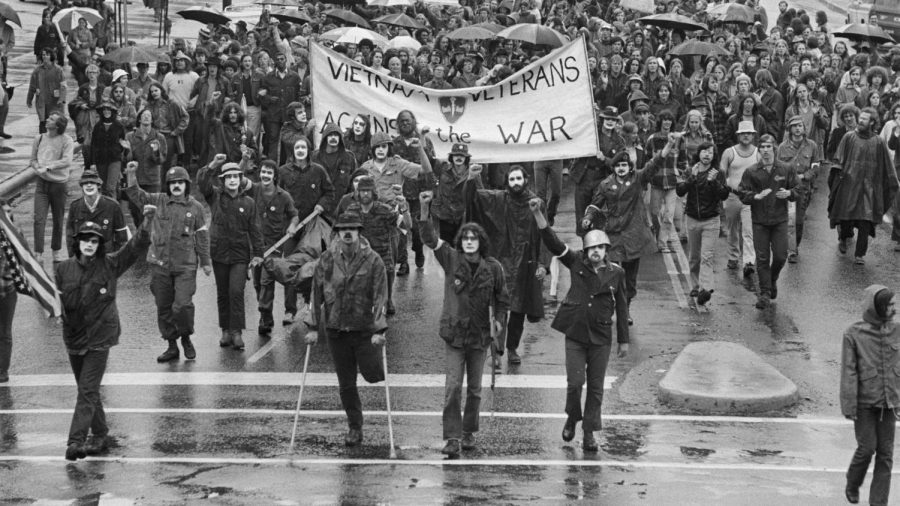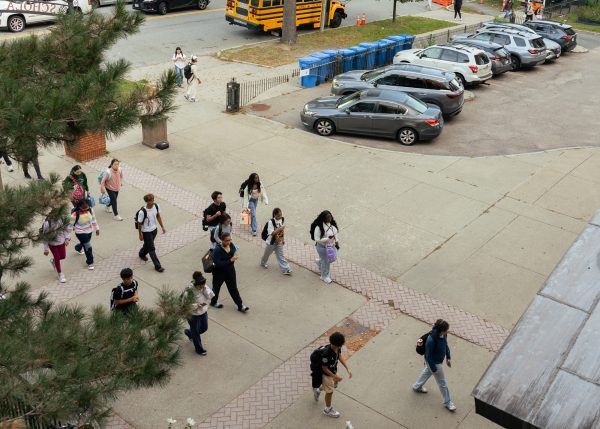A Reckoning on America Abroad
In the past half-century, the once-fringe movements that demanded reckoning with ugly parts of domestic American history have steadily become more mainstream. Though still in progress and met with significant backlash, the process of painting a more accurate picture of American history has helped millions of students grow conscious of the sickening injustices their government has committed — within its borders, at least — and in turn face the descendants of those injustices today.
America’s historical reckoning, though unfinished and much challenged, has come and this time it is here to stay within the national consciousness. Problem is, there has long been a gaping hole in this new and more critical portrait of America: the crimes of its empire abroad.
History courses and mainstream liberal culture have rightfully put domestic injustices like Jim Crow into focus, and eagerly discuss those global atrocities unconnected to the United States, like the Gulags of Soviet Russia. At the same time, our foreign abuses go almost entirely neglected.
The narrative prevails that, while the U.S. has sometimes engaged in questionable enterprises abroad, it has ultimately served as a force for democracy and good. More well-known instances in which this has not been the case, such as the U.S.-orchestrated coups in Latin America, are always seen as deviations — not the norm — even if they actually comprise the majority of American interventions. America’s great enemies, from Russia to China and Iran, are painted as the real evil-doers; since America is opposed to them, it in turn, must be the virtuous one.
In fact, a simple look at American dealings abroad shows that the U.S. has often been one of the greatest forces against democracy around the world, particularly during the Cold War era from 1946 to 1991.
The following countries have had democratically elected leaders overthrown as a result of American intervention: Mexico, Iran, Guatemala, Republic of Congo, Brazil, Indonesia, Chile and Argentina.
Autocrats directly supported by the American government ruled the following countries: Cuba (1950s), Greece, South Korea, South Vietnam, Bolivia (1970s), Chad, Saudi Arabia, Nicaragua (early 1900s), Iraq (1980s) and Cambodia — in addition to every country on the list just above.
The Central Intelligence Agency has targetted the following countries in an attempt to overthrow or assassinate their leaders: Syria (1950s), Cuba (1958-present), Nicaragua (1980s) and occupied Palestine. Remember, these lists are incomplete.
While few Americans are educated on these gross injustices, the global population largely recognizes the threat America has historically and often continues to pose toward them. The Alliance for Democracy, which runs what it describes as “the world’s largest annual study on how people perceive democracy,” found that among what people worldwide perceive as the greatest threat to democracy in 2021, “U.S. influence” ranked number five, surpassing both Russia and China, with a 44 percent consensus that it poses a threat.
Though completely contrary to the narrative Americans generally subscribe to, this perception is rooted in the U.S.’ hegemonic presence over the international arena. Even if the U.S.’ foreign policy has better moral foundations than those of its adversaries, namely Russia and China (which cannot be taken for granted; either way, no interpretation of the facts could support an assessment of U.S. foreign policy as fundamentally moral), the sheer influence and power the U.S. has to unilaterally assert and advance its own interests easily explains the feeling of mistrust many evidently feel.
When the U.S. is unhappy with the policy of less developed countries, it only needs to draw on its immense financial power to coerce them in a more pro-American direction. It often issues wide-ranging, unilateral sanctions against such states, cutting them off from the international economy with the goal of pushing the common people into such misery and distress that the ruling regime will be forced to comply with America’s wishes.
Of course, it is important to note that sanctions can be used ethically: there is a clear difference between targeted sanctions designed to hurt culpable parties and institutions, and broad sanctions specifically engineered to cause pain to the population at large. The U.S. has engaged in both, and sometimes does use them to sincerely deter criminal behavior, for example, the recent ones on Russian leaders. The U.S., however, should limit itself to targeted sanctions that promote human rights and democracy and not military domination and corporate power.
The American public, nonetheless, largely accepts both kinds of sanctions as an unfortunate but necessary tool for bringing democracy, even though forcing economic pain onto innocent people is in reality unethical and unacceptable. The U.S. claims to use sanctions to advance democracy, but often only punishes anti-democratic countries by undermining its people’s well-being, usually with the less high-minded goal of punishing disobedience, for instance, with Cuba and Iran. When it is beneficial to its corporations and the military, it zealously partners with anti-democratic countries. Meanwhile, broad and aggressive sanctions breed the extremism the U.S. claims to care so much about preventing and, crucially, use civilian suffering as a tool for pursuing political aims. When our enemies do this, we call it terrorism.
One concerning example of problematic sanctions is Venezuela. While a recent study by the Sanctions and Security Project demonstrates that the overwhelming majority of the Venezuelan people align with the U.S. in their disapproval of the dictatorial president Nicolás Maduro, they soundly reject the broad American sanctions levied against their country, intended to punish and end Maduro’s reign.
An estimate of 76 percent of Venezuelans oppose them, and 62 percent say the sanctions have had direct negative impacts on them. And we can only sympathize with their opposition. The sanctions were widened in 2019 in ways that observers like Amnesty International warned would sabotage an already abysmal humanitarian situation, which has caused the flight of millions of refugees and massive inflation. Over three quarters of the population lives in extreme poverty, according to the Council on Foreign Relations. Sanctions like these are not just.
The U.S. dominates the world even more in the military arena. It spends vastly more on its military than any other nation — more than the next 11 countries combined — and has over 700 military bases stationed around the world (as compared with Russia, with fewer than 20, and China, which only established its first military base abroad in 2017). The U.S. holds a long history of invading countries that posed no genuine threat to the safety of its people — for example, Vietnam, Panama, Grenada, Iraq, Cambodia and the Dominican Republic, in just the last 70 years.
Today the U.S. still plays a crucial role in lending political support, international legitimacy and massive amounts of arms to autocracies around the globe, including Saudi Arabia, Egypt, Turkey (only nominally democratic), the United Arab Emirates, Qatar, Pakistan and Morocco. The U.S. further lends such crucial support to countries with grim human rights records, like Israel (which is guilty of violating international law on multiple occasions ranging from an apartheid system to illegal settlements), the Philippines (whose president is currently under investigation for crimes against humanity), Honduras and Colombia. Mainstream liberals who bewail former President Donald Trump’s penchant for cruel dictators remain utterly silent on the critical monetary and weapons support that Trump, Joe Biden, Barack Obama, George W. Bush and other presidents give to other abusive regimes. This amounts to far more than whatever rash praise Trump heaps on accepted American enemies. Perhaps such critics should clarify that Trump’s mistake is liking the wrong dictators — that is, ones who do not promote American military and corporate interests. With other dictators, there is apparently no problem.
The Biden administration, of course, continuing longstanding practices, has resisted various calls to condemn those countries’ abuses, cease support for them or at the very least, to condition support on improvements in their upkeep of human rights. Do these actions point to the U.S. as a force for democracy, or indeed, as something else?
It is perhaps the unmatched power of the U.S. to advance its own strategic interests over the interest of general human welfare that has led so many to take on a perception of our country as threatening global democracy, more so than the American-designated villains of the world stage, Russia and China. To be sure, those countries’ governments are immoral, and without a doubt they execute policies that cause serious, hideous suffering within their borders and in many places around the world, including the Russian invasion of Ukraine. We should condemn and oppose their evildoings however we can.
Americans, nonetheless, should also take into account that neither of those countries comes close to rivaling the power the U.S. currently has in many different parts of the international realm. If the U.S. frequently uses its immense international power in ways that also cause serious suffering, we are morally bound to acknowledge this and call its abuses to account. It is wrong to commit more energy to opposing the crimes of foreign countries than those of the one country we have the greatest power of all to influence: our own. Real moral authority does not come from looking on our own evils with mere unease while passionately decrying the evils of “those people over there.”







